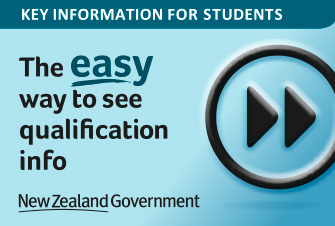Graduate Diploma in Engineering Technology
Graduate Diploma in Engineering Technology with Strands in Mechanical and Civil (Highway) Engineering
EN1801
Course details
-
Feb 2026Jul 2026
- One year
- Full-time or Part-time
- $9,019*
- You may qualify for fee-free study under Fees Free Policy
- Level 7
- Available for International Students. International Fee Guideline
- Hamilton Rotokauri Campus
Summary
This programme is for engineering graduates and working engineering professionals wishing to gain further specialist knowledge in an additional discipline area. The programme also offers the opportunity for those candidates with a relevant engineering background and experience who may wish to gain a formal qualification to recognise that experience. The programme has strands in mechanical and highway engineering.
A 30-credit Engineering Development Project is included, which may be research or work-based placement, allowing students to undertake research in an area of interest. The remaining six 15-credit modules are the various pathway modules from the Bachelor of Engineering Technology programme.
Students can complete the programme in one year’s full-time study or will be able to study part-time (up to three years) whilst in employment.
View programme modules
| Module code | Module title | Level | Credits | Pre-requisites | Co-requisites |
|---|---|---|---|---|---|
| MG7101 | Engineering Development Project | 7 | 30 | Minimum of 30 credits at level 6 in chosen major; and Civil: MG6106; or Mechanical: MG6136 |
Compulsory modules Mechanical strand
| Module code | Module title | Level | Credits | Pre-requisites | Co-requisites |
|---|---|---|---|---|---|
| MG6032 | Fluid Mechanics | 6 | 15 | MG5002 MG5004 | |
| MG6037 | Advanced Thermodynamics | 6 | 15 | MG5030 | |
| MG7031 | Applied Computational Modelling | 6 | 15 |
MG5039 or MG5032 MG6032or MG5008
| |
| MG7022 | Energy Engineering | 7 | 15 | MG6037 | |
| MG7024 | Fluids Power & Advanced Fluid Mechanics | 7 | 15 | MG6032 |
Compulsory modules Highway Engineering strand
Career/further opportunities
Graduates will have the appropriate skills and knowledge to either enter the workforce, or go on to postgraduate study in an engineering-related area, or pursue further study and professional development in other areas.
The job market evolution is predicted to increase the need for engineering technical staff with expertise in more than one technical discipline. This qualification creates a path to add a specialisation or a further specialisation to existing qualifications and/or experience.
Note that this qualification does not lead to an automatic professional affiliation and/or recognition with the Institute of Professional Engineers New Zealand (Engineers NZ) [IPENZ].
Events
No events.
Disclaimers
Entry criteria
Candidates are required to have:
a. Successfully completed a bachelor degree in an engineering discipline (excluding a specialisation in the strand the candidate wishes to complete in this programme), with a pass mark of 65% or more, from a New Zealand institution, or
b. Successfully completed a bachelor degree in an engineering discipline from an approved and accredited overseas institution, with a pass mark of 65% or more or a Cumulative GPA of 6.5 or more; and completed their degree within 5 years; or
c. Successfully completed the New Zealand Diploma in Engineering (Level 6) (excluding a specialisation in the strand the candidate wishes to complete in this programme) and have further practical, professional or educational experience of an appropriate kind; or
d.Evidence of equivalent practical, professional or educational experience, as approved by the Centre Director or designated nominee.
Special Admission
Domestic applicants aged 20 years or above who have not met the General Admission or entry requirements for a programme but whose skills, education or work experience indicate that they have a reasonable chance of success[1] may be eligible for Special Admission. Special admission will be granted at the discretion of the Centre Director or designated nominee. Such applicants may be required to successfully complete a foundation, bridging or tertiary introductory programme as a condition of entry into higher level programmes.
English language requirements
Candidates who have English as a second language are required to have an overall International English Language Test System (IELTS) score of 6.0 or better in the academic band, with a minimum of 6.0 in the written and speaking bands, and a minimum of 5.5 in the reading and listening bands; or PTE: (Academic) score of 50 with no band score lower than 42 or NZCEL: Level 4 (Academic).
Pathways

To check what you need to gain direct entry to a course, review the entry criteria available on each programme page. These assist you in understanding what qualifications or experience are typically required to gain entry. You can contact our team at info@wintec.ac.nz or 0800 2 Wintec at any time for further guidance.
Your first day
Are you ready for your first day of class? Check out your start date and where you need to be. You can also find useful information about studying at Wintec on our welcome page.
Semester 1 2026
Induction Day
Date: Monday, 16 February 2026
Time: 9am - 12pmVenue: RkGg.25, G Block, Rotokauri Campus
Whanau Day
Date: Wednesday, 4 February 2026
Time: 5.30pm - 6.30pm
Venue: G Block, Student Street, Rotokauri Campus
Prospectus (course guide)
The Wintec Prospectus (otherwise known as a course guide) outlines everything you need to know about Wintec. It contains information about the Wintec campuses, student life, and the programmes that are on offer.
Access your copy of the Wintec Prospectus
The Wintec Prospectus (course guide) is available by downloading the file - click on the document below to access the file. Alternatively, to request a copy via email or the post, please complete the form below.
Request an emailable or printed copy of the Prospectus
Portfolio
Need help? Want to know how to get started?
Leave your details here and we will come back to you:



